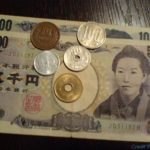Australian dollar gained against its US counterpart on Monday, following a government report, which showed that Chinese Gross Domestic Product rose in line with preliminary estimates by experts.
AUD/USD pair increased to reach a session high at 0.9120 at 6:09 GMT, after which the cross consolidated at 0.9105, still up by 0.46% for the day. The pair was likely to receive support at September 1st 2010 low, 0.8911, while resistance was to be encountered at July 8th high, 0.9143.
On July 14th an official report stated that Chinese GDP rose by 7.5% during Q2 on annual basis, matching projections by experts, as industrial production and capital asset investments declined. Concerns were boosted that the government will not be able to meet its objective of 7.5% during the whole year, while the countrys Prime Minister was struggling to curb credit boom. Chinese industrial production registered the slowest rate of increase since the beginning of recession in 2009. This weighed on the Aussie, because China is Australias largest trading partner.
“The QFII news is a piece of good news and it shows the regulator wants more capital inflows to support the market,” said Wu Kan, a Shanghai-based fund manager at Dazhong Insurance Co., overseeing 285 million USD, cited by Bloomberg. “The GDP figure was no surprise. The market is concerned that the government will now sacrifice short-term growth to alter the structure of the economy. However, that’s the price China needs to pay for long-term sustainable growth.”, he also added.
Additionally, it also became clear that New Auto Sales in Australia rose by 4.0% in June on a monthly basis, significantly improving in comparison with the previous month, when revised data showed a 0.3% increase. Annually, the indicator rose by 7.1% in June from a 0.8% climb in the preceding period. New Auto Sales could be considered as a vital gauge of consumer confidence in Australia. An increased demand for expensive durable goods can only tell, that consumers feel confident about their financial prospects and are willing to spend more.
Meanwhile, market players began focusing on the retail sales, New York Empire Manufacturing and Business Inventories reports from the United States, scheduled for release later in the trading day.





